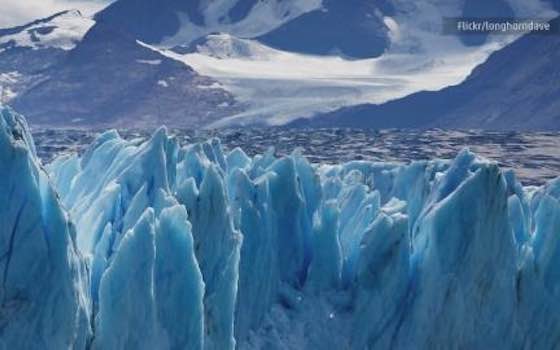- MENU
- HOME
- SEARCH
- WORLD
- MAIN
- AFRICA
- ASIA
- BALKANS
- EUROPE
- LATIN AMERICA
- MIDDLE EAST
- United Kingdom
- United States
- Argentina
- Australia
- Austria
- Benelux
- Brazil
- Canada
- China
- France
- Germany
- Greece
- Hungary
- India
- Indonesia
- Ireland
- Israel
- Italy
- Japan
- Korea
- Mexico
- New Zealand
- Pakistan
- Philippines
- Poland
- Russia
- South Africa
- Spain
- Taiwan
- Turkey
- USA
- BUSINESS
- WEALTH
- STOCKS
- TECH
- HEALTH
- LIFESTYLE
- ENTERTAINMENT
- SPORTS
- RSS
- iHaveNet.com: Environment

It's possible that we could actually hear sea level rise as it's happening, a study is using sound to better understand one of the world's greatest threats.
While sound is not typically used as a direct method to monitor sea level rise, there are certain acoustic techniques that can be employed to indirectly gather information related to changes in the ocean and sea levels. Here are a few examples:
Sonar Systems
Sonar systems use sound waves to measure the depth of the ocean floor. By mapping the topography of the seafloor over time, scientists can indirectly infer changes in sea level. However, it's important to note that sonar systems are primarily used for oceanographic research and mapping purposes rather than direct monitoring of sea level rise.
Acoustic Doppler Current Profilers (ADCP)
ADCPs are instruments that use sound waves to measure the speed and direction of ocean currents. By analyzing changes in currents and their patterns, scientists can gain insights into changes in ocean dynamics that may be related to sea level rise.
Underwater Acoustic Monitoring
Sound can be used to monitor changes in underwater conditions, such as temperature, salinity, and density. These parameters are essential for understanding ocean circulation patterns and their potential links to sea level rise.
It's worth mentioning that while sound-based techniques can provide valuable information about the ocean and its dynamics, they are often used in conjunction with other measurement methods, such as satellite-based altimetry and tide gauge observations, for a comprehensive understanding of sea level rise.
In summary, while sound-based techniques have their applications in studying the ocean and its behavior, direct monitoring of sea level rise using sound alone is not a common practice. Instead, it is through a combination of different measurement methods and comprehensive scientific research that we gain insights into the complex phenomenon of sea level rise.
More Environment & Climate Change ...
- 5 Radical Takeaways from the Pope's Letter on Climate
- A Green-Energy Founding Father
- We're All Taking Dirty Pictures
- Faking It While the World Burns
- This Oil Spill Hits Close to Home
- A Fossil-Fueled Fantasy
- The Pentagon Makes War on Alaska's Pristine Wilderness
- Climate Denial Syndrome Sweeps Wisconsin
- How Climate Change and Resource Scarcity Are Upending World Politics
- Virginia Is for Dirty-Energy Lovers
- Humanity's War on Wildlife
- Making Green Cool Again in Hungary
- David and Goliath in the Amazon
- NASA Warns of 'Megadroughts'
- Our Growing Carbon Emissions
- Global Warming Triggered Syria War
- Round-the-World Solar Flight Takes Off
- 10 Extreme Weather Facts
- New York City Sea Level Rises
- Alaskan Glaciers Disappearing
- Leather Sludge New Bio-Fuel Source
- Why the Ocean is Turning More Acidic
- Why Whales Beach Themselves
- Termites Fight Climate Change
- Gas-Guzzlers On Road To Extinction
- Technology & Transformation
- Ecuador: All You Need Is Love and Oil?
- China Pulls Critical Pollution Documentary Offline
- Forging Our Future
- Green Believers
- The Glaciers Are Talking to Us
- Bald Eagles Nesting In New York City For First Time In 100 Years
- Asian Pollution Messing With U.S. Weather
- Instagram Account Shows Reality of Climate Change
- Keystone Pipeline Would Emit Tons of Greenhouse Gases
- Why You Can't Throw Away Batteries
- Road Salt Is Worse Than You Think
- Arctic Not Cold Enough for Polar Bears
- Doomsday Clock & Climate Change
- Sea-Level Accelerating Faster Than Previously Thought
- 6 Countries Dictate Planet's Future
- Manhattan Size Glacier Breaks Apart
- Opinions Split on Fracking Benefits
- Bad News for Sea Level Rise
- 2014 Hottest Year On Record According To NASA
- While Our Planet Melts, GOP Pleads Ignorance
- The Myth of the Wild
- Plastic Bags are Not a Need - Just a Bad Habit
- Environmental Security: Conflict or Cooperation?
- Beyond The Water-Food-Energy-Climate Nexus
- Climate Change Report Sounds Alarm for Planet Earth
- Genesis, Mother Nature and Environmental Stewardship
- Global Climate Change: Calling All Pagans
- Chicken Little 'Science'
- Climate Change and Interstate Conflict
- Fracking: A Deadly Power Surge
- Inhospitable Earth -- Compared to What?
More Environment & Climate Change ...
"The Glaciers Are Talking to Us "